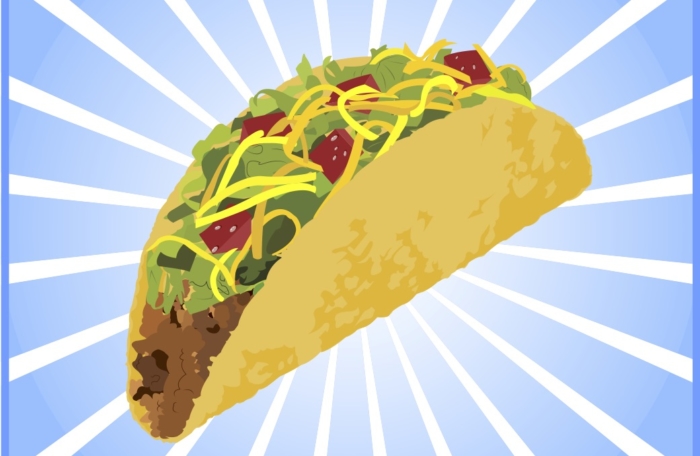Questions 1 and 2: Adding toppings to the Taco of Liberty
On Election Day, New Hampshire voters will face two important ballot questions that have received less news coverage than Whitey Bulger’s snitch-murder in a desolate, West Virginia prison.
Had the proponents of these two state constitutional amendments thought to arrange for prisoners to debate them, with rival gangs taking opposing positions, perhaps the public awareness would be greater. Surely a shanking over the finer points of the right to privacy would generate at least an evening’s worth of news coverage.
As it stands, thousands of poorly informed voters will decide on Tuesday whether to enshrine in the constitution a taxpayer right to sue the government and an individual right to privacy.
Question 1
Question 1 amends Article 8, originally titled in 1784 “Accountability of Magistrates and Officers.” It was amended in 1976 to declare that “the public’s right of access to governmental proceedings and records shall not be unreasonably restricted.”
The proposed amendment states that “any individual taxpayer eligible to vote in the State, shall have standing to petition the Superior Court to declare whether the State or political subdivision in which the taxpayer resides has spent, or has approved spending, public funds in violation of a law, ordinance, or constitutional provision.”
This was standard practice in New Hampshire until the state Supreme Court ruled in 2010 that taxpayers have to show they’ve been personally harmed by a possibly illegal government expenditure. Legislators passed a law saying otherwise, and the court ruled that unconstitutional in 2014.
As we wrote in March, Question 1 restores a taxpayer right Granite Staters had enjoyed for 147 years. It fits nicely into Article 8, which holds that elected officials are the agents of, and are accountable to, the people.
Question 2
Question 2 amends Article 2, the original 1784 portion of which reads: “All men have certain natural, essential, and inherent rights among which are, the enjoying and defending life and liberty; acquiring, possessing, and protecting, property; and, in a word, of seeking and obtaining happiness.”.
Article Ii was amended in 1974 to prevent discrimination based on “race, creed, color, sex or national origin.”
Question 2 would create an Article 2 (b) titled “Right to Privacy,” which would read: “An individual’s right to live free from governmental intrusion in private or personal information is natural, essential, and inherent.”
Opponents have complained that this language is vague and open to court interpretation. But constitutions are intentionally only slightly clearer than Bob Dylan lyrics. They use broad language on purpose to account for technological and cultural developments the authors cannot foresee.
The wording of Question 2 is no more vague than, say, Article 4, which reads: “Among the natural rights, some are, in their very nature unalienable, because no equivalent can be given or received for them. Of this kind are the Rights of Conscience.”
Question 2 is intended to protect citizens from government snooping. It is effectively a 21st century version of the U.S. Constitution’s Fourth Amendment protection against unreasonable searches and seizures, but offering a broader protection of personal information.
Enhancing the flavor of freedom
If passed, these constitutional amendments would make government more accountable to the people and further protect the people from government intrusion into their private affairs. Those are pretty important protections.
Though they probably aren’t quite as important to the average person on a daily basis as, say, the Doritos locos taco, they’re still up there.
Taco Bell got everyone to think about the Doritos Loco taco by creating a World Series promotion for free tacos. But they got the words turned around. Free tacos are great, but Taco Freedom is where it’s at.
From now until Election Day, every time you pass a Taco Bell or think of tacos (which, if you’re like us, is about every three minutes), think of how valuable our constitutional protections are.
Because when you think about it, the constitution is basically a giant Taco of Liberty. Like tacos, constitutions contain a whole bunch of ingredients that might not seem to go together, but that make delicious, delicious sense when all thrown together in a nice, crispy Tortilla of Justice.
You can weaken a taco by throwing in things that dilute or compromise the flavor. Like brussels sprouts or “positive rights.” You can make it stronger by adding things that enhance its taste and make it more powerful. The two additional ingredients on the ballot next Tuesday are flavor enhancers. They might seem surprising at first, but add them in and they taste like freedom.



